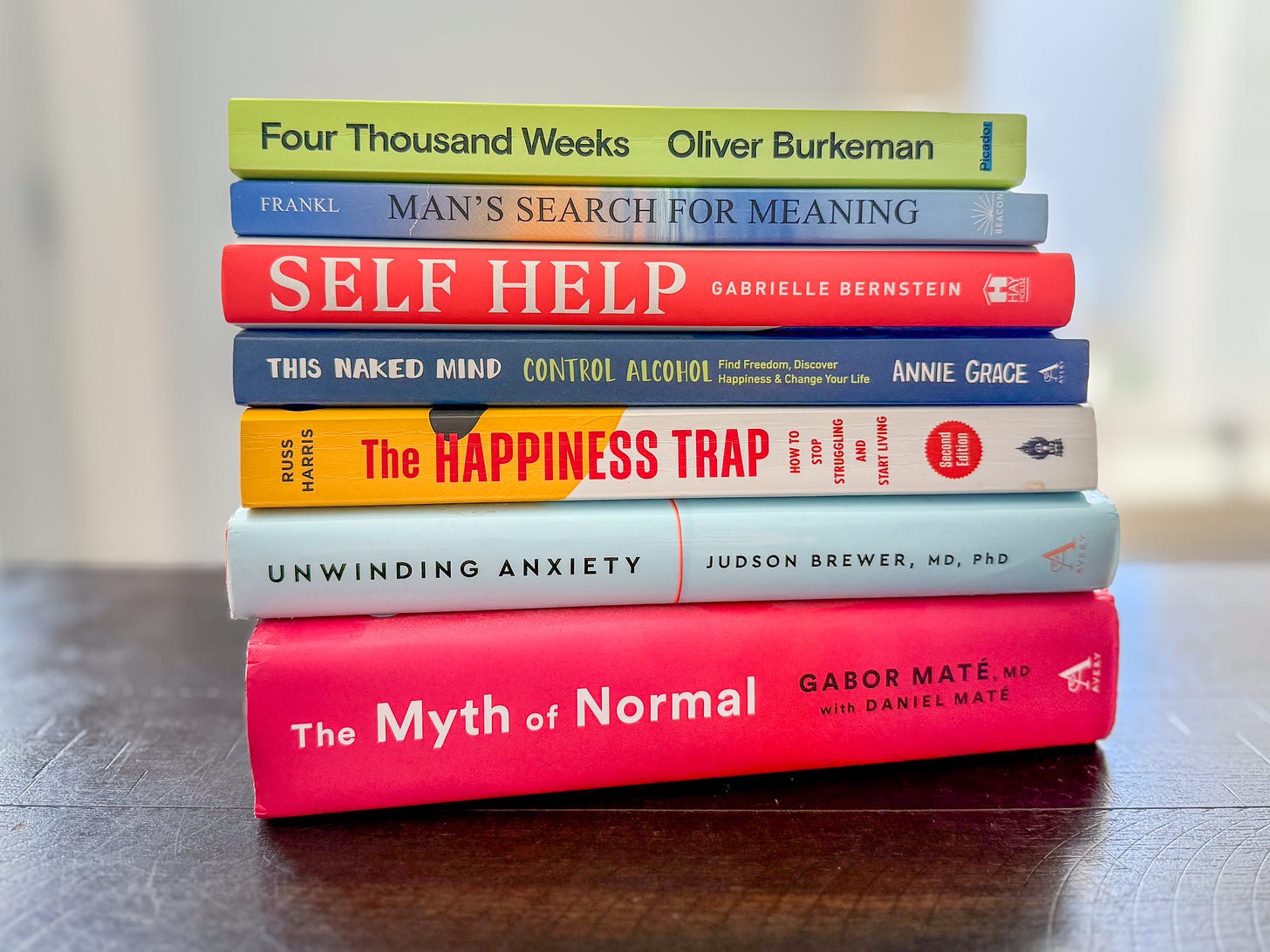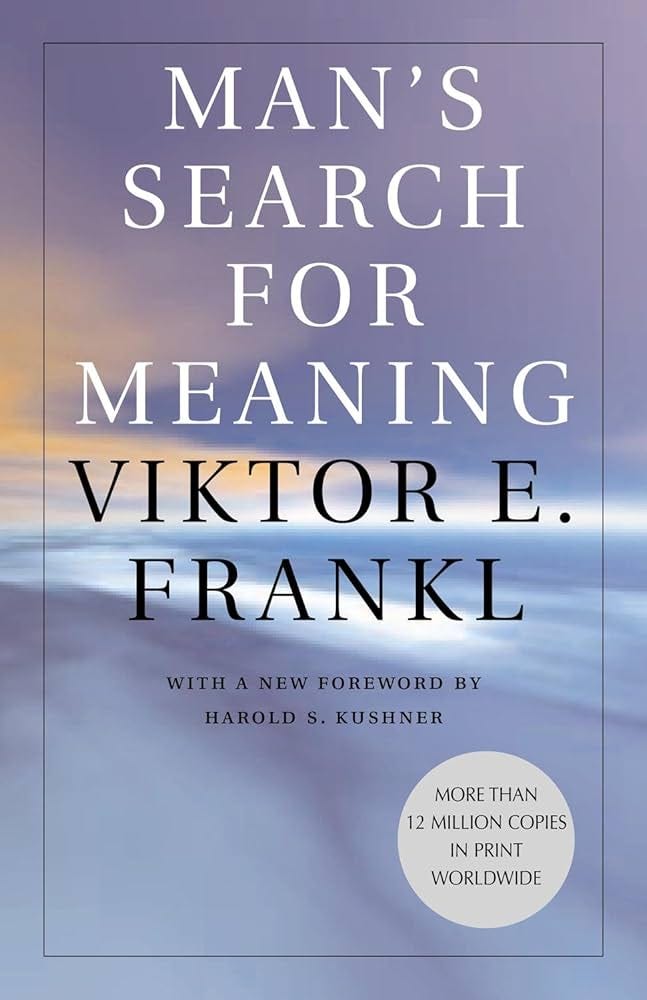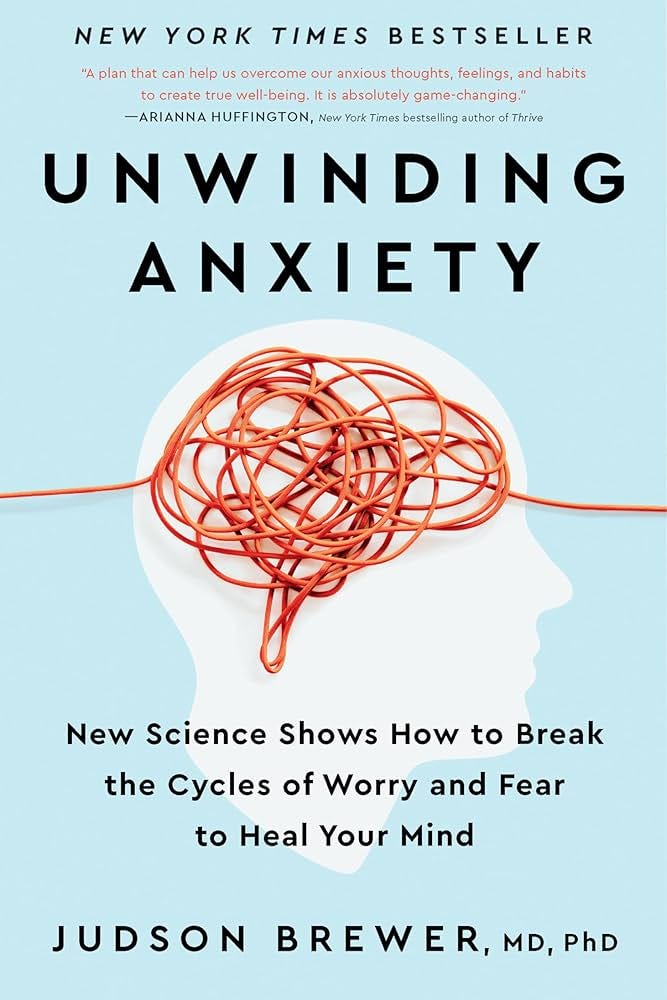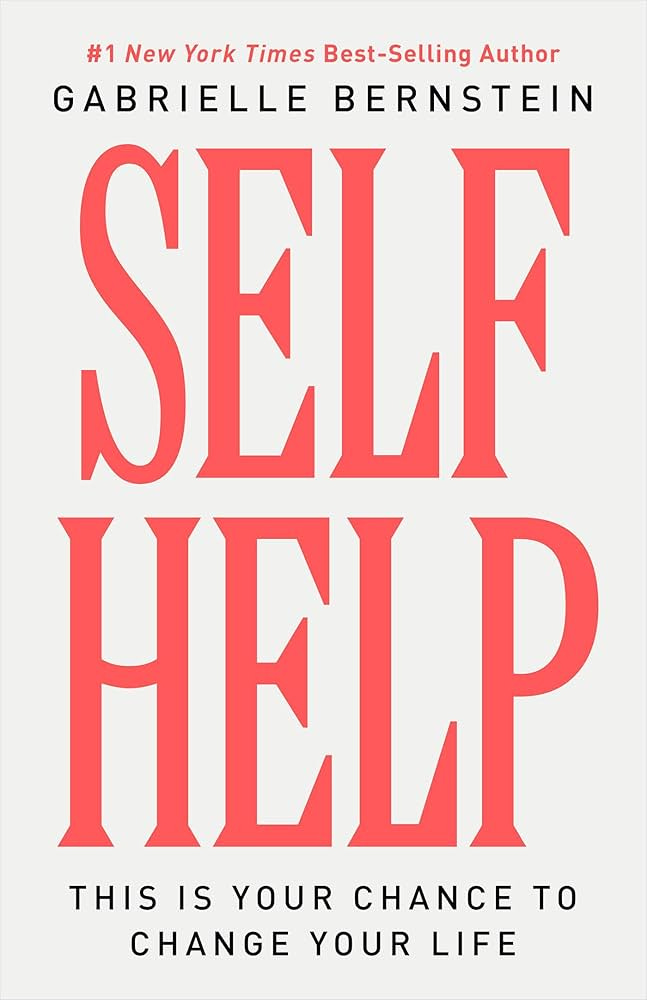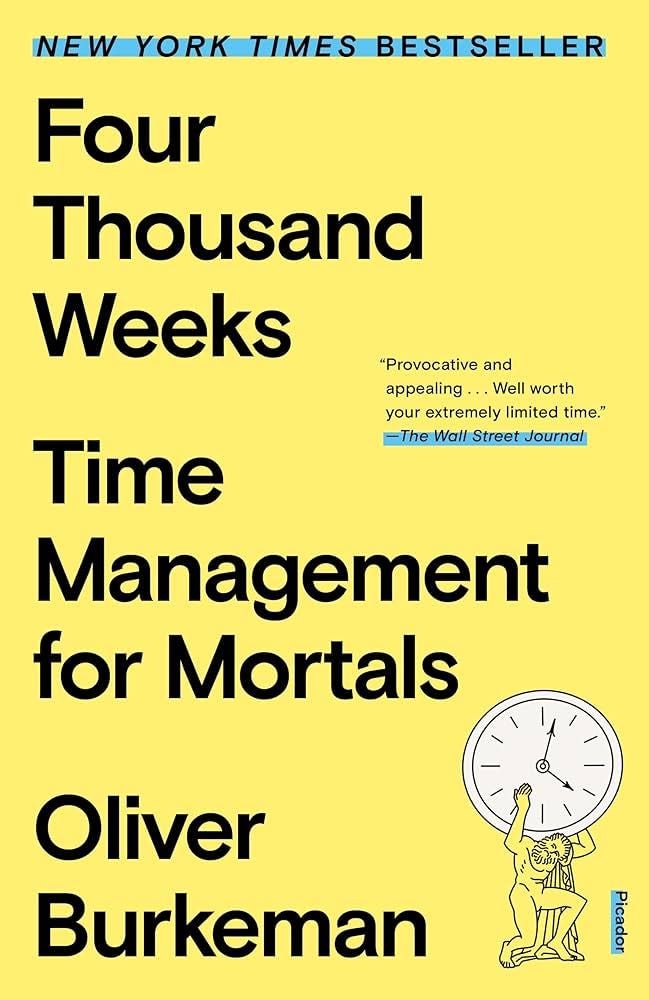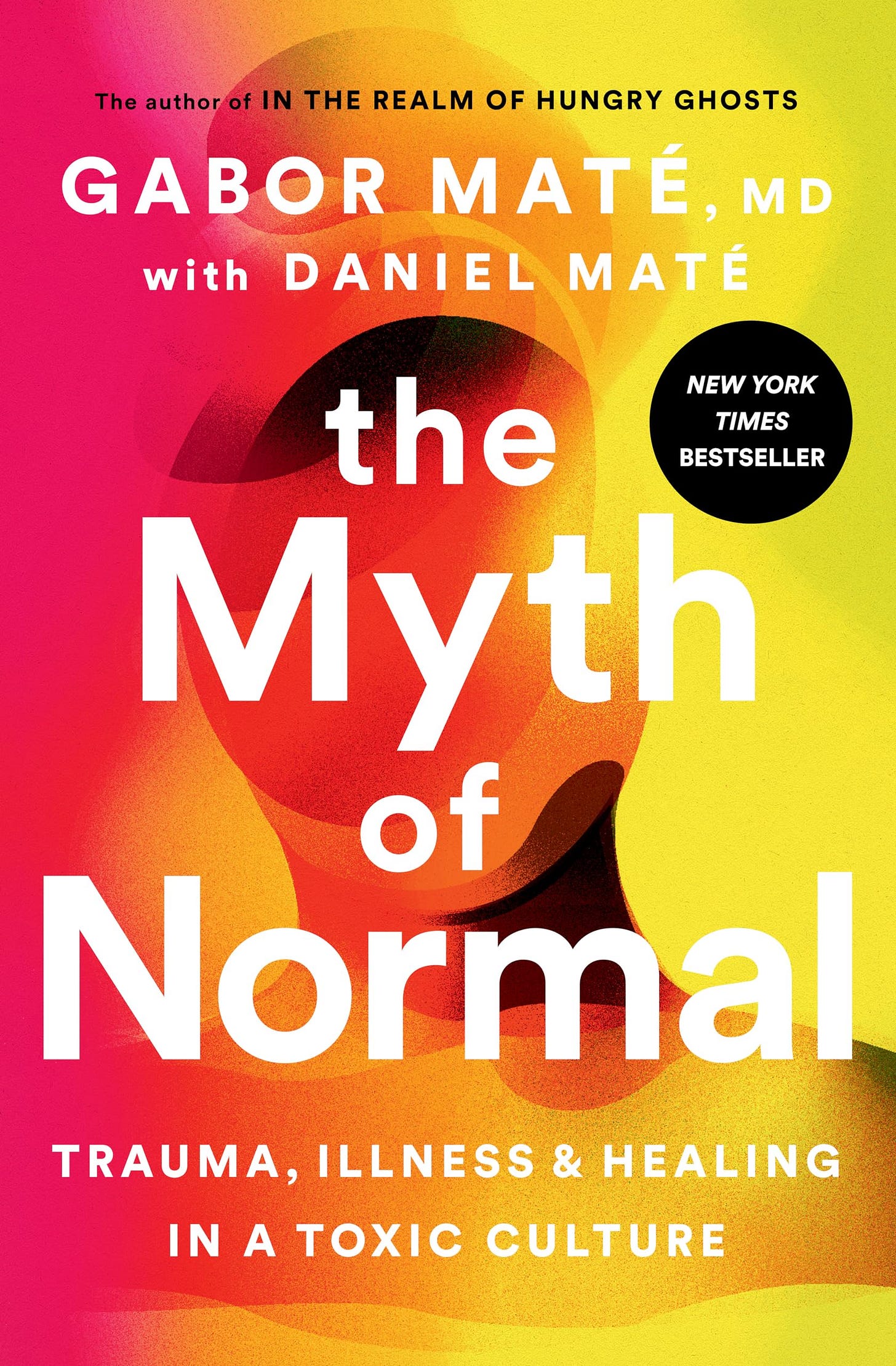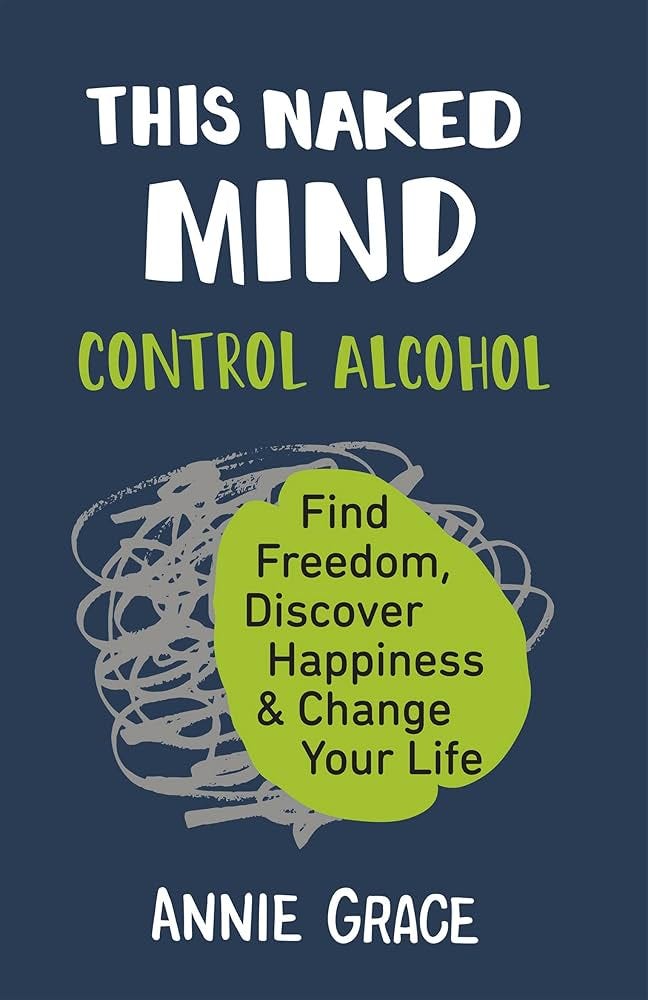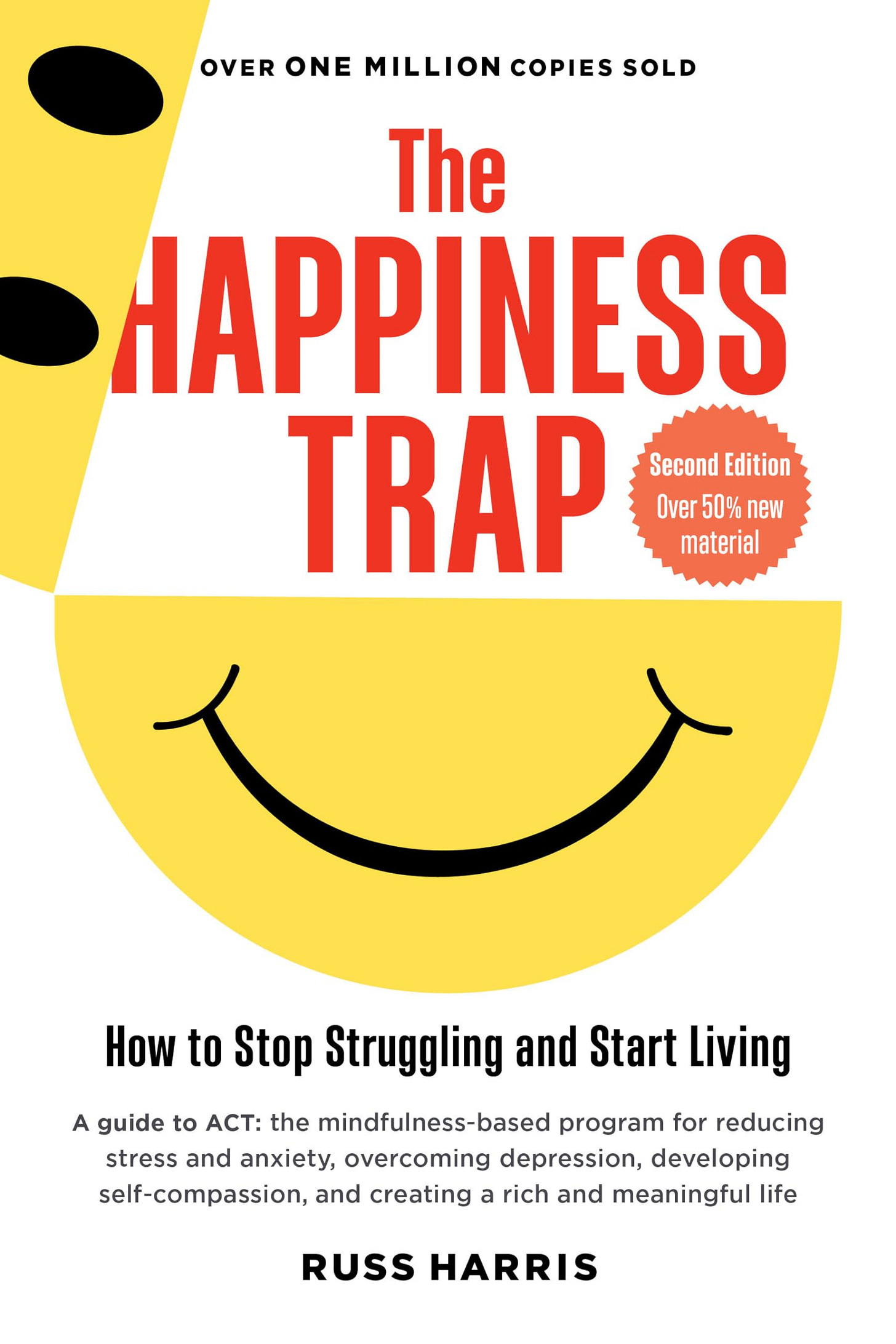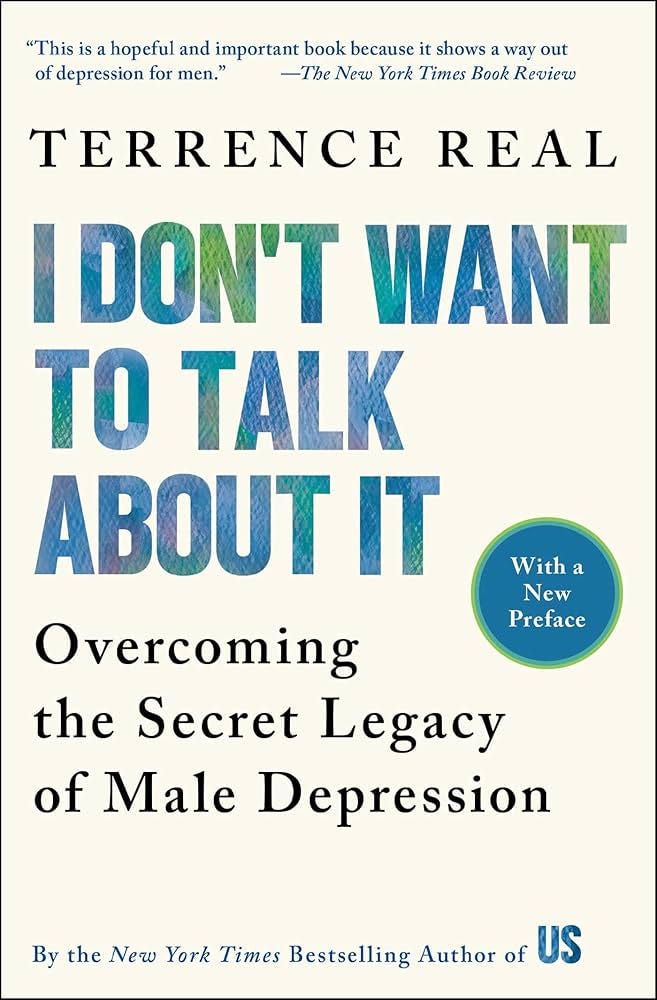The Self-Help Books That Actually Helped
Real Self-Help for Anxiety, Alcohol, Purpose, and Growth
I’ve spent most of my adult life trying to understand my anxiety, my purpose, and why I often felt disconnected from myself.
Along the way, a few books found me exactly when I needed them most. These haven’t just been self-help books to me, they’ve been more like life guides, written by people who’ve done the hard inner work and came back to share what they’ve learned.
If you’re walking a similar path—questioning old patterns, searching for clarity, or just ready to feel more alive—here are the ones that made me think, inspired me, and guided me towards a better version of myself.
I’ll list these in no particular order.
Man’s Search for Meaning by Viktor Frankl
This is one of my favorite books of all time, fiction or nonfiction.
Frankl, a Holocaust survivor and psychiatrist, teaches that the root of human suffering isn’t pain itself—it’s pain without meaning.
His lived wisdom is a reminder that we can’t always control our circumstances, but we can always control our response. If you’ve ever wondered, “Why am I here?” this book might change your life.
Unwinding Anxiety by Judson Brewer
Brewer is both a neuroscientist and a meditation teacher, which makes for a fascinating combo. He breaks down anxiety not as some mysterious force but as a habit loop our brain gets stuck in.
This book helped me zoom out and realize how much of my own anxiety was tied to feedback loops I’d been unknowingly reinforcing. Eye-opening and practical.
Self Help by Gabrielle Bernstein
“We identify ourselves based on an outer perception that we’ve built up over time—what we do, who we parent, our gender, our race, our religion, where we live, etc. Our outer focus and the pretenses we’ve created about ourselves have masked what matters most: who we truly are on the inside.”
Bernstein discusses the challenges she’s faced in her life and how Internal Family Systems (IFS) can show us our protective parts that keep us from living fully connected to our authentic Self.
If you’ve ever felt like there are different “versions” of you battling inside, this book provides the language and tools to bring them into harmony.
IFS and parts work has become an important part of my therapy journey and it all started with this book.
Four Thousand Weeks by Oliver Burkeman
“The average human lifespan is absurdly, terrifyingly, insultingly short.”
This book confronted me with a hard truth. Burkeman challenges the productivity-obsessed culture we live in and reminds us that time is finite. Four thousand weeks. That’s all we get (if we’re lucky).
It’s not about doing more, it’s about doing what matters. A perfect read for anyone who feels like they’re always running but getting nowhere.
I’ve taken a lot from this book to continue to challenge what I would like the rest of my life to look like and where I want to spend my time.
The Myth of Normal by Gabor Maté
“Trauma is not what happens to you, but what happens inside you as a result of what happens to you.”
Maté has a way of pulling the curtain back on everything we assume is "normal." He dives deep into how trauma and stress manifest in our minds and bodies, and how society is often the sickness we’re trying to treat.
It helped me realize that my struggles weren’t personal defects—they were deeply human responses to a disconnected world.
This Naked Mind by Annie Grace
“Alcohol makes life worse, not better.”
If you’re sober curious or reevaluating your relationship with alcohol, this book is a game-changer. Grace dismantles the alcohol myths we’ve grown up with and replaces them with science, psychology, and compassion.
This book was instrumental in my sobriety journey and really helped me challenge my relationship with alcohol and its usefulness.
I recommend this book to everyone who reaches out to me to ask about how I quit drinking.
The Happiness Trap by Russ Harris
“…the good news is that, although we can’t avoid such pain, we can learn to handle it much better—to ‘unhook’ from it, rise above it, and create a life worth living.”
Based on Acceptance and Commitment Therapy (ACT), this book teaches that chasing happiness can ironically make us more miserable. It helped me reframe my relationship with difficult thoughts and emotions.
Instead of fighting them, I learned to notice, accept, and move with them. It’s about making space for life—not trying to control it.
There are a number of exercises throughout the book to help you put ACT into practice and I found these to be helpful as I’ve dealt with anxiety.
I Don’t Want to Talk About It by Terrence Real
“There is a terrible collusion in our society, a cultural cover-up about depression in men.”
This book put words to what I’ve experienced all around me and inside of me since I was conscious.
It’s one of the most powerful books I’ve read on male vulnerability and the cost of emotional repression. Every man (and honestly, every woman who loves a man and/or raises them) should read it.
Real explores how men are conditioned to hide their pain and instead act out through workaholism, addiction, and isolation. This book inspired much of my post below and I’m deeply thankful for Real for writing it.
Books have been one of my most consistent mentors. I hope at least one of these does for you what it did for me.
I’m always taking book recommendations, so leave me a comment with some of your favorite self-help books and I’ll check them out!
And have you read any of these books? I’d love to hear your thoughts!



